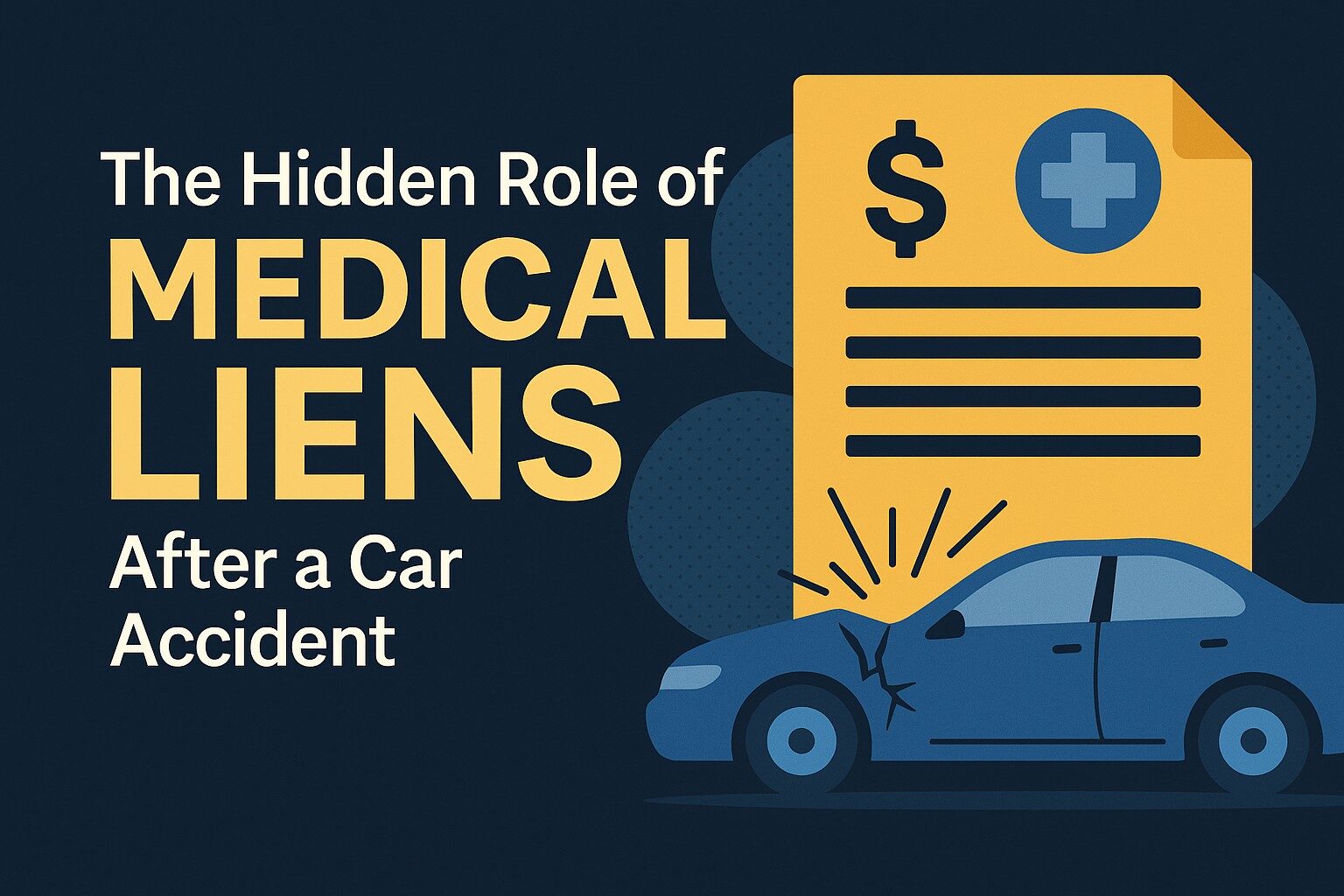You win a settlement and expect relief. Then the bill arrives: the hospital, your health plan, even Medicare want to be paid first. That surprise is a medical lien. Liens are legal rights to get reimbursed from your injury recovery. Handle them well and you keep more of your settlement. Ignore them and things can stall or even unwind.
What is a medical lien?
A medical lien is a legal claim against your settlement or verdict to repay medical expenses tied to your crash. Different players can assert one:
- Hospitals and certain providers under state law
- Your health plan (commercial, ERISA self-funded, or VA/TRICARE)
- Public programs like Medicare and Medicaid (TennCare in Tennessee)
Liens have priority rules and deadlines. Some must be reduced by fees and case costs. Some can be negotiated. A few must be repaid or the payer can pursue recovery later.
Why it matters
- Liens are paid before you. Your “net” is what remains after attorney’s fees, case costs, and valid liens.
- Unresolved liens can delay payment. Insurers often require lien resolution before issuing final checks.
- Mistakes can be costly. Medicare has statutory recovery rights, and TennCare has subrogation rights. Not addressing them can trigger payback demands later.
The main types you will see
Hospital and provider liens (Tennessee)
Tennessee’s Hospital Lien Act gives hospitals and certain facilities a lien for reasonable charges related to accident care. It attaches to any claim you have against the at-fault party. Look to Tenn. Code Ann. §§ 29-22-101 to 29-22-107.
Good to know: hospitals must follow statutory steps to perfect a lien and charges must be reasonable. Negotiation is often possible, especially when insurance payments or charity discounts apply.
Medicare (federal)
Medicare is a secondary payer. If a liability settlement pays for accident injuries, Medicare has a right of reimbursement from those proceeds. This comes from the Medicare Secondary Payer statute, 42 U.S.C. § 1395y(b)(2).
How payback is calculated: Medicare generally reduces its recovery for a share of your attorney’s fees and litigation costs under 42 C.F.R. § 411.37. Medicare issues a conditional payment amount, then a final demand after settlement.
Medicaid / TennCare (state and federal)
Medicaid programs have statutory rights to recover only the portion of a settlement that represents medical expenses. The U.S. Supreme Court has confirmed limits on how much Medicaid can take. See Arkansas Dep’t of Health & Human Servs. v. Ahlborn, 547 U.S. 268 (2006) and Wos v. E.M.A., 568 U.S. 627 (2013). In Tennessee, TennCare’s subrogation rights appear in Tenn. Code Ann. § 71-5-117.
Employer health plans (ERISA)
Self-funded ERISA plans often have strong reimbursement language that creates an “equitable lien by agreement.” Courts generally enforce clear plan terms. See Sereboff v. Mid Atlantic, 547 U.S. 356 (2006) and US Airways, Inc. v. McCutchen, 569 U.S. 88 (2013).
Translation: the exact plan document matters. Some plans must reduce for fees, others do not.
How liens get reduced or resolved
- Medicare: typically reduced for a pro-rata share of fees and costs. Can be compromised in certain hardship situations.
- TennCare/Medicaid: limited to the medical portion of the recovery. Ahlborn and Wos require a reasonable method to allocate.
- Hospital liens: challenge non-accident charges, duplicate billing, and ask for written itemizations and any contract rate adjustments.
- ERISA plans: reductions depend on the plan document. Request the full plan and summary plan description in writing.
Common mistakes to avoid
- Signing a release before you know lien totals. Once money moves, leverage drops.
- Assuming “full coverage” pays your medical liens. Liability and collision do not handle reimbursement rules.
- Relying on verbal numbers. Always get final lien statements in writing.
- Forgetting future care. If treatment is ongoing, factor that into negotiations.
Plain-English checklist
- Ask these four questions: Who is asserting a lien, how much, why, and under what statute or plan document.
- Request itemized statements and proof of payments.
- Apply the right reduction rule: Medicare’s procurement reduction, Medicaid’s medical-only limit, plan-document rules for ERISA, reasonableness for hospital liens.
- Get everything confirmed in writing before you accept or distribute settlement funds.
Conclusion
If you or a loved one was injured and medical liens are complicating your recovery, we’re here to help. We can sort out who is owed, what must be reduced, and how to resolve liens so you keep more of your settlement.
Call 615-244-2111 or reach out through our online contact form.
Because we care,
Stillman & Friedland







